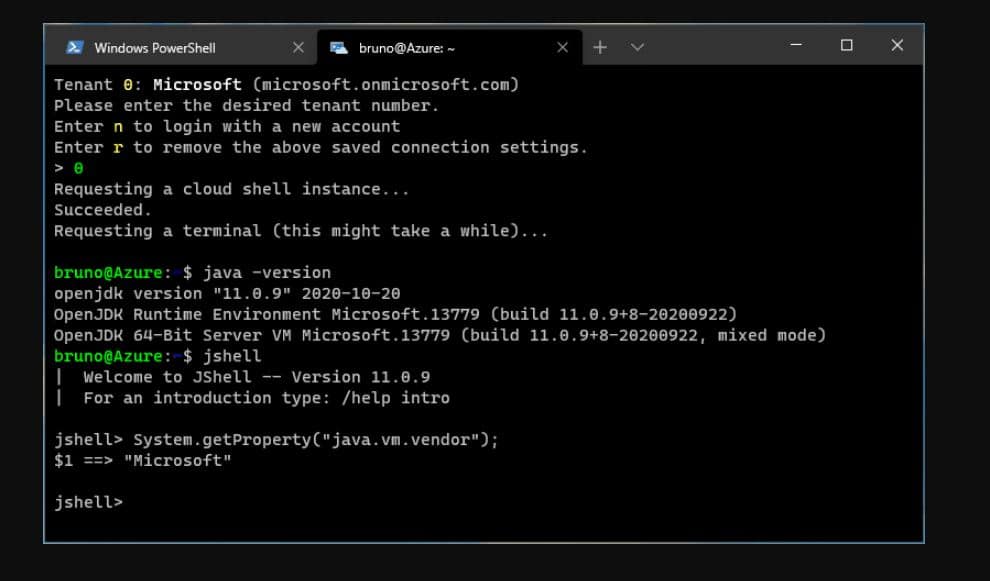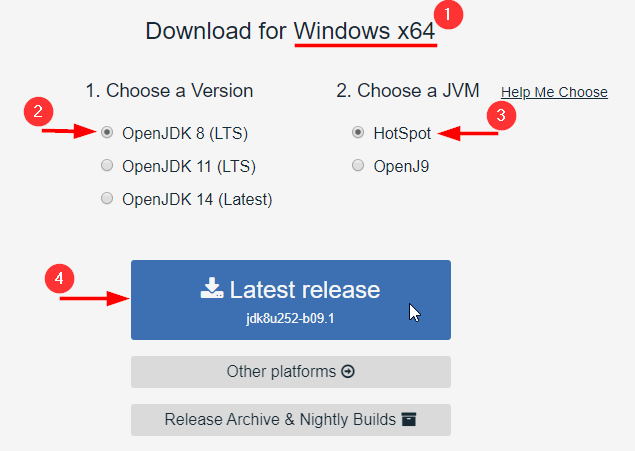
- #INSTALL OPENJDK 11 WINDOWS RUNTIME INSTALL#
- #INSTALL OPENJDK 11 WINDOWS RUNTIME ZIP FILE#
- #INSTALL OPENJDK 11 WINDOWS RUNTIME WINDOWS 10#
OpenJDK 64-Bit Server VM 18.9 (build 11.0. OpenJDK Runtime Environment 18.9 (build 11.0.2+9) I've also tried to follow the guidance of this thread and that's the output of the two commands that the first answer advises to run: C:\Users\MyUser>java -version The third party app you are trying to run and is complaining about Java 1.8.0 not being installed is likely poorly written. On that site you can get a 64-bit Java 11 JRE available for Windows. Eclipse Temurin binaries are available for download in the. The best place to get OpenJDK and its related JRE is from the adoptopenjdk web site.
#INSTALL OPENJDK 11 WINDOWS RUNTIME INSTALL#
Install the latest LTS version (openSUSE/SLES) zypper install temurin-17-jdk.

Install the latest LTS version (CentOS/RHEL/Fedora) yum install temurin-17-jdk. (The fact that I can run the Java applications I'm creating and not external ones is a bit weird). macOS (Homebrew) Windows (Winget) Install the latest LTS version (Debian or Ubuntu) apt-get install temurin-17-jdk. What have I tried: I read this thread from stackoverflow, but I don't want to build my own JRE, just have one on my computer capable of running the java applications I have already installed. Set the System Variables: Enter Windows Control Panel System Advanced System Settings. Download and install the latest open-source JDK. But, after the installation when I tried checking the version using command java -version its showing like regular JDK. Theyre very high quality and come in multiple variants for Windows ranging from zip files to MSI installers. It will create a jdk-11.0.3+7 (version number may vary) folder within the location that you select. The best way to do this is to use the builds from adoptopenjdk.
#INSTALL OPENJDK 11 WINDOWS RUNTIME ZIP FILE#
Extract the downloaded zip file into, for example, C:Program FilesJava. I thought that the OpenJDK provides me all the tools to make Java applications run, but I'm surely missing something. Select the HotSpot implementation for Windows 圆4 and download the JDK. Visual Studio 2019 is supported by default. Install with the desktop development kit, which includes Windows SDK and compilers.
#INSTALL OPENJDK 11 WINDOWS RUNTIME WINDOWS 10#
However, I have another program (not developed by me) which stopped working complaining that it needs a Java Runtime Environment. Required packages: autoconf, binutils, cpio, diffutils, file, gawk, gcc-core, make, m4, unzip, zip. Step 1: Download Zulu OpenJDK 11 For Windows Here is the step by step procedure to download and install the latest Azul Zulu OpenJDK on Windows 10 / Windows 8 / Windows 7.

To install Azul Zulu into the c:javajdk11 folder and add. Then I've installed the Eclipse IDE and everything worked fine. openjdk version 11.0.10 LTS OpenJDK Runtime Environment Zulu11.45+27-CA (build. In order to install it I simply unzipped the jdk in another folder and set the JAVA_HOME environment variable accordingly. I recently uninstalled all Oracle Java products and installed OpenJDK from, on my Windows 10 system, because I'm planning to develop some Java applications.


 0 kommentar(er)
0 kommentar(er)
